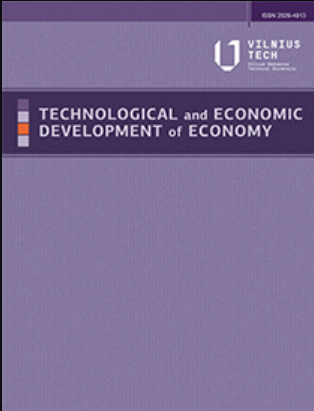不完全偏好信息下分布式光伏项目投资组合的两阶段数学规划模型
IF 3.9
2区 经济学
Q1 ECONOMICS
引用次数: 1
摘要
随着太阳能光伏(PV)市场的快速增长,许多分布式光伏发电项目被引入市场。在有限的信息和资源条件下,需要综合考虑项目的财务和非财务因素,选择合理的项目投资组合是能源企业面临的一项复杂而富有挑战性的任务。提出了分布式光伏项目投资组合选择的两阶段混合多属性决策和整数规划模型。在第一阶段,采用基于数学规划的多属性群体决策方法对不完全偏好信息下的项目非财务价值进行评估。利用参数可调的补偿加权平均算子捕捉专家在聚合过程中的主观态度特征。然后,建立了一个等级可接受度指标来衡量各个项目在非财务维度上的群体支持程度。第二阶段,构建了项目组合优化的双目标整数规划模型,该模型考虑了资源、碳排放等战略约束下项目的财务和非财务价值。通过对分布式光伏项目投资组合选择的案例研究,验证了该方法的适用性和有效性。本文章由计算机程序翻译,如有差异,请以英文原文为准。
A TWO-STAGE MATHEMATICAL PROGRAMMING MODEL FOR DISTRIBUTED PHOTOVOLTAIC PROJECT PORTFOLIO SELECTION WITH INCOMPLETE PREFERENCE INFORMATION
With the rapid growth of the solar photovoltaic (PV) market, many distributed PV power projects are introduced to the market. Selecting a rational project investment portfolio is a complex and challenging task for energy enterprises as both financial and non-financial factors of projects are needed to be considered under limited information and resources. This study presents a two-stage hybrid multi-attribute decision-making and integer programming model for distributed PV project portfolio selection. In Stage I, a multiple attribute group decision-making method based on mathematical programming is used to evaluate the non-financial value of projects under incomplete preference information. Compensative weighted averaging operators with an adjustable parameter are utilized to capture the subjective attitudinal character of an expert in the aggregation process. Then, a rank acceptability index is developed to measure each project’s group support degree in non-financial dimension. In Stage II, a bi-objective integer programming model is constructed to optimize project portfolios, which considers both financial and non-financial values of projects under resource, carbon emission and other strategic constraints. The applicability and effectivity of the proposed approach are demonstrated by a case study of a distributed PV project portfolio selection.
求助全文
通过发布文献求助,成功后即可免费获取论文全文。
去求助
来源期刊
CiteScore
10.00
自引率
8.50%
发文量
66
审稿时长
15 weeks
期刊介绍:
Technological and Economic Development of Economy is a refereed journal that publishes original research and review articles and book reviews. The Journal is designed for publishing articles in the following fields of research:
systems for sustainable development,
policy on sustainable development,
legislation on sustainable development,
strategies, approaches and methods for sustainable development,
visions and scenarios for the future,
education for sustainable development,
institutional change and sustainable development,
health care and sustainable development,
alternative economic paradigms for sustainable development,
partnership in the field of sustainable development,
industry and sustainable development,
sustainable development challenges to business and management,
technological changes and sustainable development,
social aspects of sustainability,
economic dimensions of sustainability,
political dimensions of sustainability,
innovations,
life cycle design and assessment,
ethics and sustainability,
sustainable design and material selection,
assessment of environmental impact,
ecology and sustainability,
application case studies,
best practices,
decision making theory,
models of operations research,
theory and practice of operations research,
statistics,
optimization,
simulation.
All papers to be published in Technological and Economic Development of Economy are peer reviewed by two appointed experts. The Journal is published quarterly, in March, June, September and December.

 求助内容:
求助内容: 应助结果提醒方式:
应助结果提醒方式:


